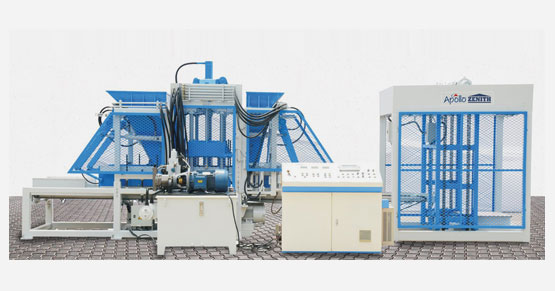Table of Contents
Concrete blocks are rapidly becoming the preferred choice for builders worldwide, offering unique benefits that surpass traditional materials like bricks and wood in terms of durability, insulation, and cost-effectiveness. This shift is being fueled by the advancements in block making machines, which enable faster and more consistent production of high-quality concrete blocks. In this article, we’ll explore the advantages of concrete blocks and the role of modern block making machines in making them a superior building solution.
1. Durability and Strength of Concrete Blocks
Concrete blocks offer unparalleled durability compared to other materials. Unlike wood, which can decay or succumb to termites, or clay bricks, which can chip and erode over time, concrete blocks maintain structural integrity in diverse environmental conditions. This durability has led to a rise in the popularity of block manufacturing machines, especially in areas with extreme weather conditions where resilient building materials are crucial. Concrete block machines allow for consistent production, ensuring each block meets the high-strength requirements needed for enduring construction.
Concrete blocks also offer the flexibility to produce various designs, such as solid blocks and hollow blocks, each tailored to meet specific structural needs. Solid block making machines, for instance, are ideal for producing blocks for foundations and load-bearing walls, thanks to their superior strength.

2. Enhanced Insulation Properties
Insulation is another major advantage of concrete blocks over other materials. Buildings made with concrete blocks have a natural thermal mass, keeping interiors cooler in the summer and warmer in the winter. This makes concrete blocks an energy-efficient choice, ultimately reducing the need for additional insulation materials and lowering energy costs for heating and cooling.
For builders and contractors, using an automatic concrete block machine allows for the precise control of block density, enhancing the insulation properties of each block. Advanced solid concrete block making machines provide custom density options, allowing manufacturers to produce blocks that meet specific energy efficiency standards, a feature that traditional building materials struggle to match.
3. Cost-Effective Production and Construction
Concrete block making is highly cost-effective compared to other materials like bricks. When produced with automatic block making machines, the production process becomes even more economical, as these machines reduce labor costs and increase production speed.
For example, automatic concrete block machines and cement block machines streamline production by automating the mixing, molding, and curing processes. This efficiency in production lowers the overall cost of each block, providing an affordable solution without compromising quality. In India, block making machines have been instrumental in meeting the growing demand for low-cost housing by enabling local manufacturers to produce affordable, high-quality concrete blocks on a large scale.
4. Sustainable and Eco-Friendly Construction
Compared to wood, which depletes natural forests, and clay bricks, which often rely on environmentally damaging mining practices, concrete blocks are an environmentally sustainable choice. With the help of modern block manufacturing machines, concrete block production can incorporate recycled materials, including industrial by-products like fly ash and slag. These eco-friendly production practices contribute to reducing the overall environmental footprint of construction projects.
Fully automatic concrete block making equipment offers options to use eco-friendly materials while minimizing waste, aligning with the global push for sustainable building practices. The versatility of automatic paver block making machines and cement block machines also allows builders to produce blocks for various applications, including eco-friendly pavement options.
5. Faster and More Efficient Construction
Concrete blocks, especially those produced by automatic concrete block making machines, allow for quicker construction. Concrete blocks’ uniform shape and size make them easier to lay than traditional bricks, which can vary in size and require skilled labor for proper installation. With the speed and consistency provided by block machines, contractors can complete projects faster, saving time and labor costs.
The adoption of automatic solid block making machines enables large-scale production of standardized blocks that facilitate faster construction, especially in high-rise buildings and infrastructure projects. This efficiency makes concrete blocks produced by machines an ideal choice for builders who need to meet tight deadlines.
Conclusion: Why Block Making Machines Are the Future of Construction
The advantages of concrete blocks-strength, insulation, cost-efficiency, and sustainability-make them a superior choice compared to other materials. With advancements in concrete block making equipment, manufacturers can now meet these high standards while producing at scale. From the rise of solid block machines to the adoption of automatic block making machines, the future of construction is clearly aligned with the use of concrete block making technology.
As demand grows, so does the relevance of concrete block making machines in India and globally, especially in areas where affordable, durable, and sustainable housing solutions are needed. These machines represent not only a technological advancement but also a way forward in addressing modern construction needs efficiently.
Table of Contents
